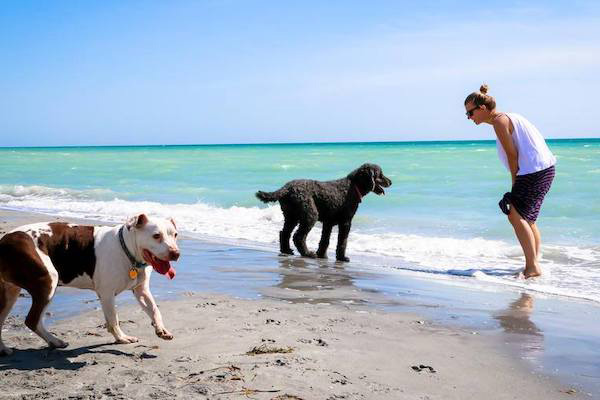SEBASTIAN – Summer is here, and this means going to the beach, sandbar, and ocean activities. We want to warn dog lovers to be careful when taking your “best friend” with you to these locations.
Saltwater poisoning in dogs is more common than one would think, particularly for those who take their dog frequently to the beach.
Diagnose Saltwater Poisoning
Odd behavior is the most noticeable symptom of dog saltwater poisoning. Your dog can become lethargic, confused, non-responsive, vomit, and/or have diarrhea due to too consuming too much sodium.
Other reported symptoms of saltwater poisoning in dogs include coma, convulsions, headache, high fever, increased heart rate, muscle spasms respiratory distress, seizures, stomach pains, and tongue swelling.
As time passes, they may become reluctant to eat or drink fresh water. Additionally, your dog could begin to swell or have excessive thirst or urination.
Call your dogs veterinarian if he/she seems off after visiting the ocean, even if it is hours later.
Preventing Saltwater Poisoning
The best way to prevent your dog from saltwater poisoning is to make sure they do not drink saltwater. Be sure to watch your pet!
Make sure your pet drinks fresh water before you leave your home, before allowing them to go into the ocean, and frequently while during your visit.
Treatment for Saltwater Poisoning
Dogs with saltwater poisoning should be admitted to the hospital for oxygen, electrolytes to manage dehydration and IV fluid therapy. This way, your veterinarian can ensure that your dogs salt levels are gradually brought down, as a sudden change can cause braining swelling or a heart attack. It can take several days to do this safely.
